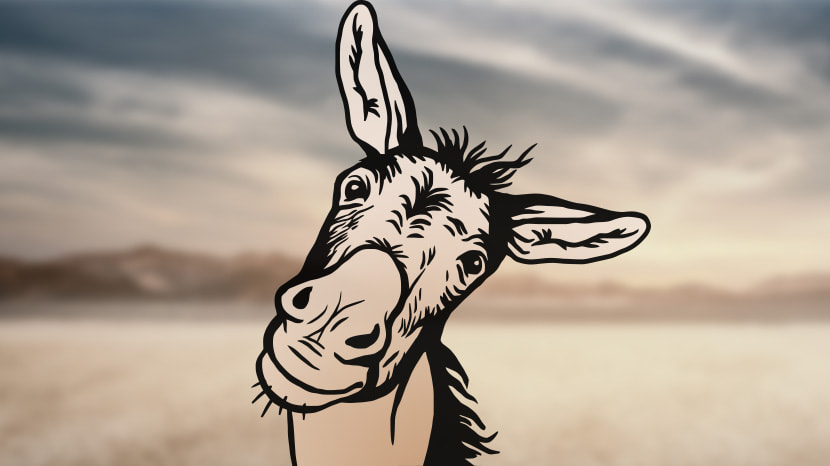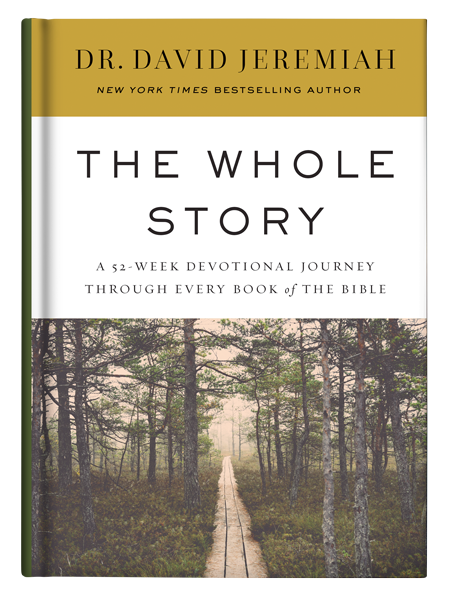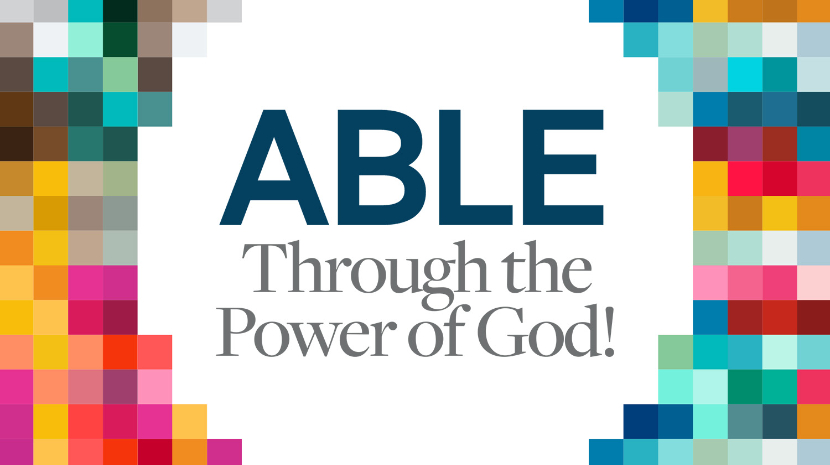From the July 2021 Issue

Online Exclusive: From This Point Forward
A Talking Donkey... and Other Unlikely Beasts
One winter, a Minnesota resident named Brett Grinde decided to walk his dog. But as they ambled down the road, Effie, the fifteen-year-old hunting dog, started straining at her collar and was clearly upset. Grinde unsnapped her leash, and Effie raced to a spot some distance away. There, frozen to the ground, was an unconscious 94-year-old neighbor who had fallen while venturing out for his mail. Effie ran up to him and began licking his face. Paramedics were called, and the man was revived and taken to an area hospital. Police credit Effie with saving the man’s life.
I wonder how anyone can doubt the creative genius of God when they study the complexity He built into the animal kingdom. Nothing but creation can explain the instinct that gives dogs their wits, birds their migratory skills, and bees their honey-making expertise.
The Lord is delighted with His animal kingdom. He longed to spare Nineveh from destruction, not only because of the large human population but because of the livestock (Jonah 4:11). He instructed us in Proverbs 12:10 to take “godly care” of our animals (as the New Living Translation puts it). Jesus said that God watches over the sparrows, noticing if any fall to the ground (Matthew 10:29). “I know every bird in the mountains,” said the Lord, “and the creatures of the field are mine” (Psalm 50:11, NIV).
So we’re not surprised to find that the Lord filled His book with animals in about the same proportion as He placed them in His world. They’re everywhere, and they come in every shape and size, from gnats to whales. Some are frightening and we run from them; others are so comical we laugh at them. They swim in the water, crawl in the dirt, walk on two or four or a hundred legs, or fly through the air. This world is a virtual zoo of animals God created and placed in their various ecosystems and environments.
Why did He create so many living creatures? One reason was educational. God created some animals specifically to teach us behavioral skills and moral values. By looking at those animals, we can see ourselves. We can learn lessons about our own lives. We could easily devote a year’s worth of articles to this; but since space is limited, let me give a few brief examples, ending with my favorite Bible animal of all.
David’s Sheep
Psalm 23 reminds us of David’s sheep. They taught him as much about God as the best rabbi in Israel. They showed him how utterly dependent he was on the companionship, provision, and guidance of the Good Shepherd. A sheep, after all, is one of the few animals that cannot make it on its own. Dogs can go wild and live in packs in the woods and track down their own food and take care of themselves. Many wild animals don’t need human help at all. Cats adapt to the wild, and so do most of the other animals that we sometimes domesticate and keep as pets. You hear about herds of buffalo and wild horses on the prairie. But you never hear about sheep migrating on their own in great flocks. They have no defensive equipment (except hard heads occasionally used for butting). They can’t fight with their hoofs or their teeth. They can’t track down food. They can’t run away very easily, or dig holes, or climb trees. They can’t kick very effectively or bite.
They’re utterly dependent on a shepherd to care for them. We may think we can make it on our own. The human race might think it can get along just fine without a good and gracious God; but in the end, we can never do it. We need a Shepherd. As the New Living Translation says in Psalm 23: “The LORD is my shepherd: I have all that I need.”
Solomon’s Ants
If David was concerned with sheep, his son was intrigued with ants. Solomon was the world’s first myrmecologist, telling us in Proverbs 6:6-8, “Go to the ant, you sluggard! Consider her ways and be wise, which, having no captain, overseer or ruler, provides her supplies in the summer, and gathers her food in the harvest.”
Undoubtedly, Solomon, a great zoologist, had been down on his hands and knees many times, studying the columns of ants marching in endless succession from their hills to a drop of sugar and back, working, laboring ceaselessly, laying in store for the needs of their colonies. Perhaps he noticed that even the smallest ants know how to communicate with one another by touching each other with their antennas. Perhaps he noticed the complexity of their divisions of labor and their ability to solve difficult problems. Perhaps he noticed the trails they left behind and the chemicals they secreted to tell other ants where to go for the food. Even to this day, scientists marvel at the parallels that exist between ant hills and human society. Proverbs 30:25 says, “The ants are a people not strong, yet they prepare their food in the summer.”
Why did God create ants? Perhaps to show us the value of hard work and wise foresight. Each ant is a tiny marvel of engineering that shows us what faithful employment and wise cooperation will accomplish.
Jonah’s Worm
Let’s go on to another lowly creature—Jonah’s worm. When we think of Jonah, we usually think of an animal on the opposite side of the scale—the whale. But the book of Jonah is designed to show us how even in Christian service we can struggle with our attitudes. In chapters 1-2, Jonah battled a rebellious and hateful spirit, and God used a prepared fish to teach him a lesson. In chapters 3-4, Jonah battled pettiness and self-pity, and the Lord called on another animal-servant, the worm. Jonah had been sulking in the blistering sun, happy for a vine that gave him shade. But God prepared a worm to destroy the plant, and Jonah was upset. That’s when the Lord spoke to him, saying, in effect, “Jonah, you’re upset over your own comfort, but I’m concerned about the eternal destiny of this vast city. Don’t sit around feeling sorry for yourself. See things as I do.”
Great object lesson from a tiny worm!
Balaam’s Donkey
If we had more time, I’d tell you about Isaiah’s eagle, Jesus’ colt, Peter’s rooster, Samson’s honeybees, Pharaoh’s frogs, and Elijah’s ravens. But owing to expediency, let’s finish with the most unusual animal story in the Bible—Balaam’s donkey.
Balaam was a pagan prophet hired by a foreign king to curse the Israelites. But he was ambivalent, not wanting to offend his political friends, yet not wanting to offend the God of Israel. He finally agreed to make an investigative trip by donkey. The Lord, none too pleased, sent an angel to warn him. The angel was invisible to Balaam, but the donkey saw him. The beast stopped in its tracks, causing Balaam to angrily strike it. Shortly afterward, the donkey, spooked again by the angel, bolted against a rock wall, mashing Balaam’s foot and eliciting another beating. The third time the donkey just collapsed and lay on the ground, sending the prophet sprawling. Balaam whipped the animal again.
Suddenly the Lord opened the donkey’s mouth.
“What have I done to you, that you have struck me these three times?” it said.
Balaam seems to have been so confused that at first he didn’t even register the oddity of the event. He answered as if conversing with a donkey was the most normal thing in the world. “Because you have abused me,” he said angrily. “I wish there were a sword in my hand, for now I would kill you.”
If only we had a videotape of this! But eventually the Lord opened Balaam’s eyes, and he, too, saw the angel and he repented of his anger and his mission.
The lesson? Well, here’s one of them. When we ignore God’s direction for our lives, He often uses unlikely events, people, circumstances, and maybe even animals to get our attention. For Jonah it was a worm; for Peter, a rooster; for Balaam, a donkey. The Lord is infinitely creative in keeping us on the right path. It may not be with an animal; it could be circumstances, a timely book, an inner voice, or another person. But the Lord will oft use unlikely means to keep us in the center of His will.
Learn to look for His warnings, His detours, His signposts, and His guidance. It’s a shame when a lowly donkey has more horse sense than we do.
More Articles
This Month's Magazine Resource

The Whole Story
This year-long guided Bible study and a daily Bible reading plan is specifically designed for your spiritual journey in the new year ahead, with encouragement and inspiration to stay connected to God’s Word...your ultimate hope...every single day.
Subscribe Now
Each month, read articles and devotionals from Dr. David Jeremiah that will encourage, challenge, and strengthen your walk with the Lord.




















